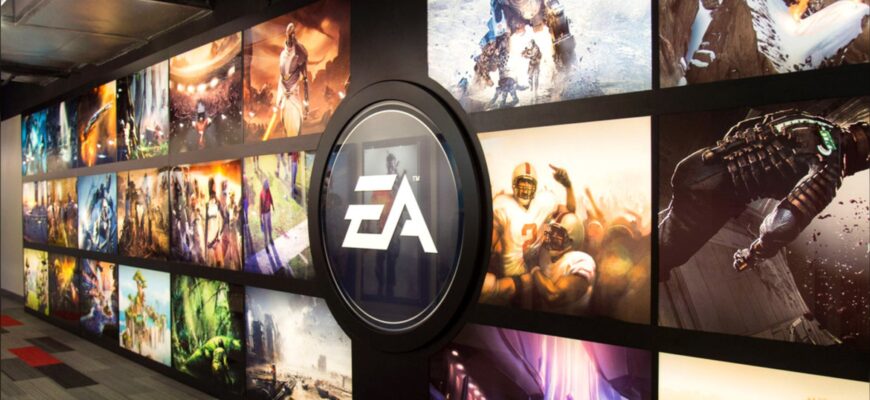In a move that could send seismic waves through the global entertainment industry, Electronic Arts (EA), the titan behind some of gaming`s most iconic franchises, is reportedly nearing a monumental $50 billion deal to transition from a publicly traded entity to a private enterprise. This ambitious venture is said to be spearheaded by a consortium of investors, prominently featuring Saudi Arabia`s Public Investment Fund (PIF) and the private-equity powerhouse, Silver Lake. If realized, this transaction wouldn`t merely be significant; it would rewrite history as the largest leveraged buyout ever recorded.
The Anatomy of a Mega-Deal: $50 Billion and Beyond
At its core, this isn`t just another acquisition; it`s a strategic maneuver of colossal proportions. While EA`s current market capitalization hovers around $43 billion, insider discussions suggest the deal values the company closer to an eye-watering $50 billion. This premium reflects not only EA`s existing market strength but also its vast potential in an ever-expanding digital landscape. The sheer scale is staggering, eclipsing the previous record holder – a $32 billion buyout of Texas utility company TXU in 2007. It`s a testament to the surging financial might and strategic importance now attributed to interactive entertainment.
PIF`s Strategic Play: Building a Digital Empire
For those observing the global investment arena, Saudi Arabia`s Public Investment Fund is no stranger to high-stakes plays. Under the stewardship of Crown Prince Mohammed bin Salman, the PIF has aggressively diversified its portfolio, funneling billions into technology, sports, and, notably, video games. This isn`t a casual dalliance; it`s a calculated strategy to build a robust digital economy as part of Saudi Vision 2030, reducing reliance on oil. Their existing footprint in gaming is already substantial:
- Scopely: A mobile gaming developer fully owned by the Saudi government via PIF, which notably acquired a division of Pokémon Go developer Niantic.
- Major Stakes: Significant investments in industry giants like Activision Blizzard, Take-Two, Embracer Group, and Nintendo.
- Existing EA Interest: PIF already holds a 2.6% stake in EA, making this potential buyout a logical, albeit massive, escalation of their commitment.
This systematic accumulation of gaming assets underscores a clear intent: to become a dominant force in one of the world`s most lucrative and rapidly evolving industries. One might almost say they’re collecting gaming companies like rare achievements in a grand, geopolitical strategy game.
EA: From Sports Simulators to a New Horizon?
Electronic Arts hardly needs an introduction. For decades, it has shaped the gaming landscape with blockbuster franchises that define genres. From the enduring legacy of FIFA (soon to be EA Sports FC) and Madden NFL to the basketball courts of NBA 2K and the recently revamped Skate, EA’s stable of intellectual properties commands immense loyalty and revenue. The transition to private ownership could offer EA new strategic flexibilities, potentially freeing it from the quarterly earnings pressures of the public market and enabling longer-term investments in innovation and new IP development.
The Ethical Quandary: Investment vs. Values
However, this deal isn`t without its complexities, particularly regarding the ethical implications of PIF`s involvement. Crown Prince Mohammed bin Salman, who chairs the PIF, remains widely implicated in the 2018 assassination of journalist Jamal Khashoggi, and Saudi Arabia faces ongoing accusations of human rights violations. These controversies cast a long shadow over PIF`s global investments, prompting questions from players, industry observers, and human rights advocates alike.
“The confluence of vast capital and significant ethical concerns presents a fascinating, if uncomfortable, dilemma for the gaming community. Can the future of play be divorced from the provenance of its funding?”
This isn`t an isolated incident; Saudi Arabia`s foray into sports, including the contentious formation of LIV Golf and its subsequent, albeit unresolved, merger discussions with the PGA, has previously ignited fierce debate. The gaming industry, known for its vocal community, may soon find itself grappling with similar discussions about the sources of its investments and the values they represent.
What Happens Next?
The reported timeline suggests an announcement could be imminent, potentially as early as next week. If the deal moves forward, it will not only redefine EA`s trajectory but also set a new precedent for mega-acquisitions in the digital realm. It will be a pivotal moment, forcing a broader conversation about the future of corporate ownership in entertainment, the influence of sovereign wealth funds, and the ever-present tension between financial opportunity and ethical considerations. The gaming world, it seems, is on the cusp of a truly unprecedented level of play.







